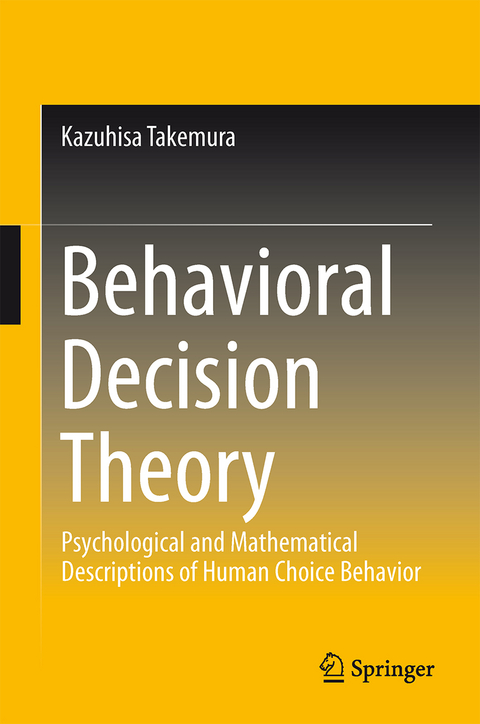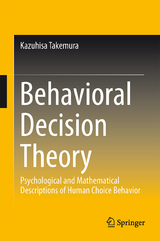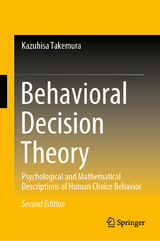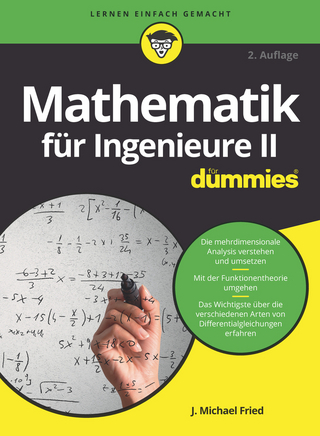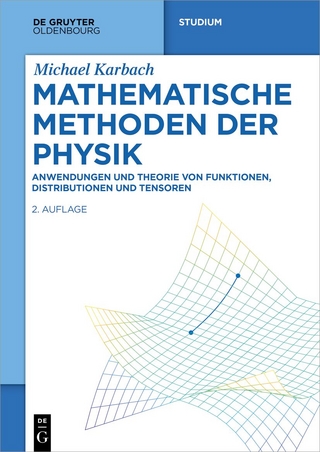Behavioral Decision Theory
Springer Verlag, Japan
978-4-431-54579-8 (ISBN)
- Titel erscheint in neuer Auflage
- Artikel merken
1 Decision-Making Phenomenon and Behavioral Decision Theory .-Preference Reversal Phenomenon and Description of the Phenomenon .-2 Ordinal Utility and Preference Reversal Phenomenon .-3 Causes of Preference Reversal Phenomenon .-4 Psychology of Preference Reversals and Prominence Hypothesis .-5 Expected Utility Theory and Psychology .-6 Axioms and Counterexamples Expected Utility Theory .-7 Preference Paradox and Nonlinear Expected Utility Theory .-8 Prospect Theory and Decision-Making Phenomena .-9 The Framing Effect of Decision Making .-10 Theories Used to Explain the Framing Effect .-11 Decision-Making Process .-12 Behavioral Decision Theories that Explain Decision-Making Processes .-13 Behavioral Decision Theory and Good Decision Making .-Appendix .-Author Index .-Subject Index
| Zusatzinfo | 2 Tables, color; 27 Tables, black and white; 11 Illustrations, color; 33 Illustrations, black and white; XV, 207 p. 44 illus., 11 illus. in color. |
|---|---|
| Verlagsort | Tokyo |
| Sprache | englisch |
| Maße | 155 x 235 mm |
| Gewicht | 4616 g |
| Themenwelt | Mathematik / Informatik ► Mathematik ► Angewandte Mathematik |
| Mathematik / Informatik ► Mathematik ► Finanz- / Wirtschaftsmathematik | |
| Sozialwissenschaften ► Soziologie | |
| Wirtschaft ► Allgemeines / Lexika | |
| Wirtschaft ► Betriebswirtschaft / Management | |
| Schlagworte | Behavioral decision theory • Behavioral Economics • Consumer Behavior • Decision Making • Uncertainty |
| ISBN-10 | 4-431-54579-4 / 4431545794 |
| ISBN-13 | 978-4-431-54579-8 / 9784431545798 |
| Zustand | Neuware |
| Haben Sie eine Frage zum Produkt? |
aus dem Bereich
